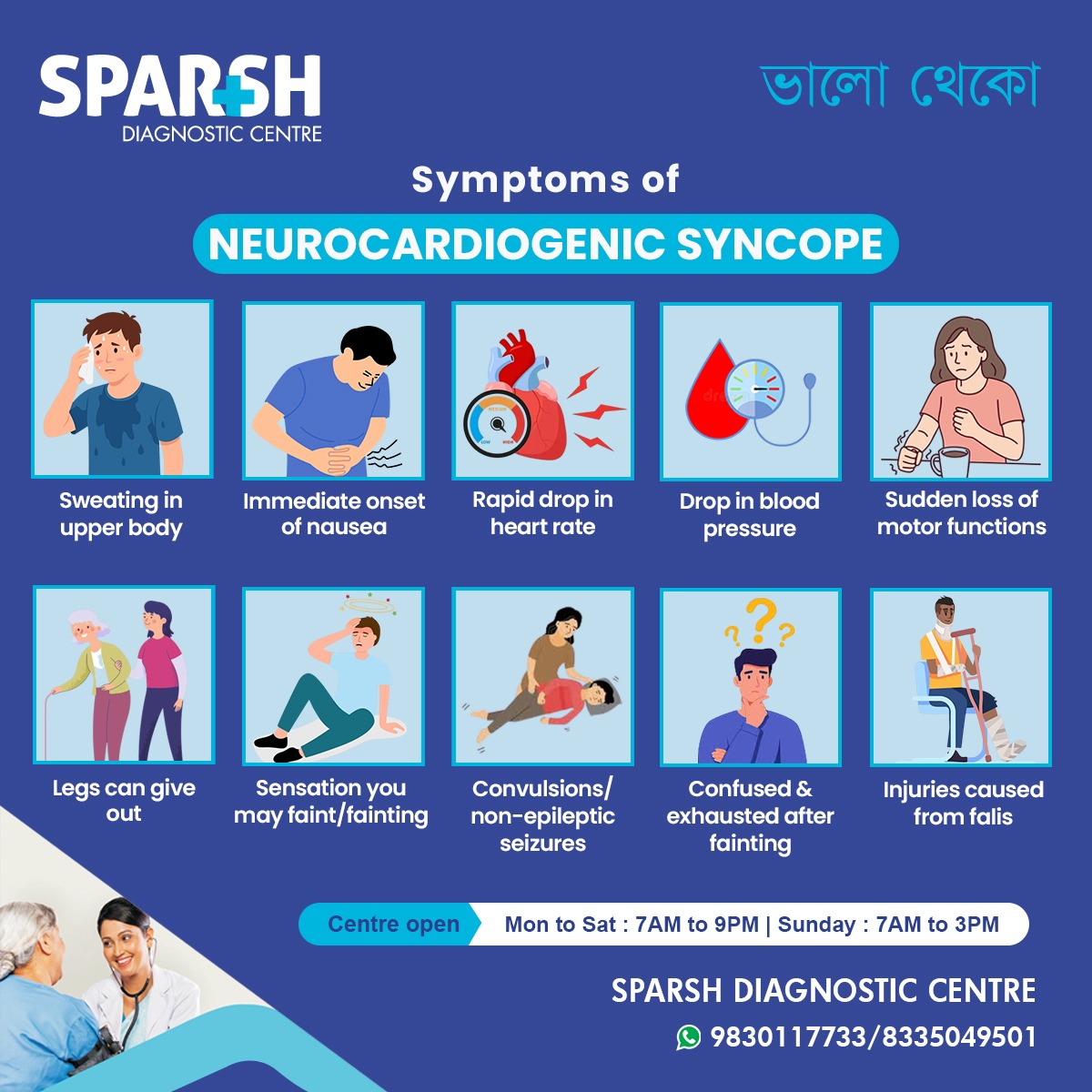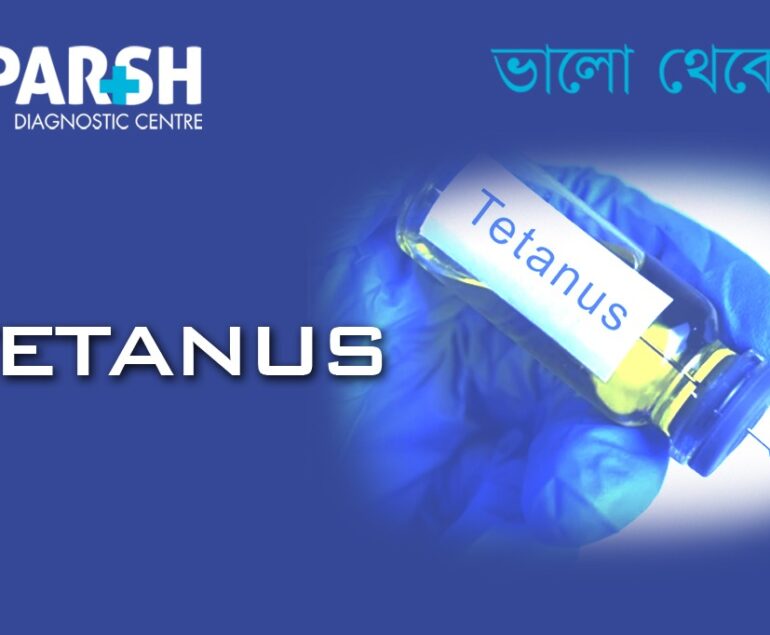Have you ever felt dizzy, sweaty, or nauseated before suddenly fainting? If yes, you might have experienced neurocardiogenic syncope, also known as vasovagal syncope. It is the most common cause of fainting and occurs when your body overreacts to certain triggers — such as emotional stress, pain, or prolonged standing — leading to a temporary reduction in blood flow to the brain.
While neurocardiogenic syncope is usually benign and self-limiting, it can sometimes cause injuries from falls or signal an underlying heart condition. Understanding its causes, symptoms, and management is crucial to preventing recurrent episodes.
What Is Neurocardiogenic Syncope?
Neurocardiogenic syncope is a type of reflex syncope that happens due to an abnormal reflex involving the heart and blood vessels. During an episode, the autonomic nervous system (which regulates involuntary functions like heart rate and blood pressure) temporarily malfunctions.
As a result:
Blood vessels dilate, causing blood pressure to drop
Reduced blood flow to the brain leads to fainting (temporary loss of consciousness)
This entire process usually lasts a few seconds to minutes, after which normal consciousness returns.
Common Triggers of Neurocardiogenic Syncope
Episodes of neurocardiogenic syncope are often triggered by factors that affect your cardiovascular or emotional state. Some of the most common triggers include:
Standing for long periods
Sudden changes in posture
Fear, anxiety, or emotional distress
Painful or shocking experiences
Seeing blood or undergoing a medical procedure
Dehydration or skipping meals
Exhaustion or fatigue
Understanding these triggers can help patients take preventive steps to reduce the likelihood of fainting episodes.
Symptoms of Neurocardiogenic Syncope
Before fainting, many individuals experience warning signs, known as prodromal symptoms. These symptoms typically appear seconds to minutes before loss of consciousness.
The common symptoms include:
Sweating in the upper body
Excessive sweating is one of the earliest signs as the body tries to cope with autonomic changes.Immediate onset of nausea
The individual may suddenly feel nauseated or experience an upset stomach before fainting.Rapid drop in heart rate
The slowing of the heart rate decreases cardiac output, contributing to brain hypoperfusion.Drop in blood pressure
Dilation of blood vessels leads to a sudden decline in blood pressure.Sudden loss of motor functions
The person might lose control of movement or feel their muscles weaken.Legs can give out
This can cause the individual to collapse or fall if not supported.Sensation of impending fainting
A feeling of dizziness, tunnel vision, or “blacking out” is common.Convulsions or non-epileptic seizures
Some people may experience jerky movements, often mistaken for epileptic seizures.Confusion and exhaustion after fainting
Post-syncopal fatigue and disorientation may last for several minutes.Injuries from falls
Falls can lead to bruises, fractures, or head injuries, especially in elderly individuals.

How Neurocardiogenic Syncope Differs from Other Causes of Fainting
While all types of fainting involve a temporary loss of consciousness due to reduced brain perfusion, the underlying causes differ.
Here’s how neurocardiogenic syncope stands apart:
| Type of Syncope | Primary Cause | Common Triggers | Typical Duration | Recurrence |
|---|---|---|---|---|
| Neurocardiogenic (Vasovagal) | Autonomic reflex abnormality | Emotional stress, standing long, pain | Seconds to minutes | Common |
| Cardiac Syncope | Arrhythmias, structural heart disease | Exertion, heart disease | Sudden, no warning | Potentially dangerous |
| Orthostatic Hypotension | Blood pressure regulation failure | Standing up quickly | Short duration | Common in elderly |
| Neurologic Syncope | Brain-related (e.g., stroke, seizure) | Neurological event | Variable | Depends on condition |
Risk Factors
Certain individuals are more prone to experiencing neurocardiogenic syncope, such as:
Young adults and adolescents
People with low blood pressure
Individuals under high stress
Patients with dehydration
Those taking certain heart or blood pressure medications
People with prolonged standing jobs
While it is common in younger populations, older adults may also experience it due to autonomic dysfunction or medication effects.
Diagnosis of Neurocardiogenic Syncope
Diagnosing neurocardiogenic syncope involves ruling out more serious cardiac or neurological causes of fainting.
Your doctor may recommend:
1. Detailed Medical History
Your physician will review your symptoms, frequency of episodes, triggers, and family history.
2. Physical Examination
This includes checking your blood pressure and pulse in different positions (lying, sitting, and standing).
3. Electrocardiogram (ECG)
To rule out abnormal heart rhythms or heart disease.
4. Echocardiogram
Evaluates heart structure and function.
5. Tilt Table Test
This is the gold standard test for diagnosing neurocardiogenic syncope.
You are made to lie on a table that tilts to different angles to simulate changes in posture.
A drop in heart rate and blood pressure during tilting confirms the diagnosis.
6. Blood Tests
To rule out anemia, dehydration, or metabolic causes.
7. Holter Monitor or Event Recorder
Records heart activity over 24–48 hours to detect intermittent arrhythmias.
Treatment and Management
The goal of treatment is to reduce recurrence and prevent injuries during episodes.
Management includes lifestyle modifications, medications, and in rare cases, medical interventions.
1. Lifestyle Modifications
Avoid known triggers such as standing for long periods or heat exposure.
Stay hydrated — drink plenty of water and electrolytes.
Increase salt intake (if advised by your doctor) to maintain blood pressure.
Perform physical counterpressure maneuvers — crossing your legs, tensing muscles, or clenching fists when you feel faint.
Rise slowly from sitting or lying positions.
Avoid alcohol, as it can lower blood pressure.
Eat smaller, frequent meals to prevent post-meal drops in blood pressure.
2. Medications
If lifestyle changes are insufficient, your doctor may prescribe:
Fludrocortisone – helps retain sodium and water to maintain blood pressure.
Midodrine – constricts blood vessels and prevents blood pooling.
Beta-blockers – reduce overactive heart reflexes in certain cases.
SSRIs (Selective Serotonin Reuptake Inhibitors) – in refractory cases linked to autonomic imbalance.
3. Physical Therapy
Tilt training (gradually increasing standing tolerance) may help patients prone to fainting.
4. Pacemaker Implantation
Rarely, a pacemaker is considered if episodes are associated with severe bradycardia or heart block.
Complications
Though neurocardiogenic syncope itself is benign, repeated fainting can lead to:
Physical injuries from falls
Anxiety or fear of recurrence
Reduced quality of life
Accidents while driving or operating machinery
Hence, early diagnosis and preventive strategies are vital.
Prevention Tips
To minimize the risk of an episode:
Stay well hydrated.
Avoid hot environments.
Sit or lie down immediately if you feel dizzy.
Practice tensing leg and arm muscles to maintain circulation.
Don’t skip meals.
Manage stress through breathing exercises or meditation.
If episodes are frequent, consult a cardiologist for further evaluation.
When to Seek Medical Help
Consult a doctor immediately if:
Fainting occurs during exertion or exercise
You experience chest pain or palpitations before fainting
There’s a family history of sudden cardiac death
Fainting results in serious injury or head trauma
You have multiple recurrent episodes
A healthcare professional can differentiate between benign fainting and more dangerous heart or brain-related causes.
Living with Neurocardiogenic Syncope
While neurocardiogenic syncope may seem alarming, it is manageable with awareness and care.
Learning to recognize warning signs and modifying lifestyle habits can drastically reduce its impact on daily life.
Support groups and patient education can also help individuals build confidence in managing their condition.
FAQs on Neurocardiogenic Syncope
1. Is neurocardiogenic syncope dangerous?
Generally, it is not dangerous. However, injuries from falls and rare heart rhythm issues may occur in some cases.
2. Can neurocardiogenic syncope be cured?
There is no permanent cure, but lifestyle adjustments and medical treatment can effectively prevent recurrence.
3. What should I do if I feel like I’m going to faint?
Lie down immediately, elevate your legs, and take deep breaths. If unable to lie down, sit and place your head between your knees.
4. How long does an episode last?
The fainting episode usually lasts less than a minute, but recovery and confusion may last for several minutes afterward.
5. Can dehydration trigger fainting?
Yes. Dehydration decreases blood volume, making fainting more likely.
6. Should I stop driving if I have frequent fainting spells?
Yes, avoid driving until your doctor confirms that your condition is under control to prevent accidents.
7. Is it related to epilepsy?
No. While some symptoms like jerky movements may resemble seizures, neurocardiogenic syncope is not a form of epilepsy.
8. Who should I consult for diagnosis and treatment?
You should consult a cardiologist for diagnosis and a tailored treatment plan.
Neurocardiogenic syncope is a common but manageable condition that results from a temporary imbalance in the autonomic nervous system. Recognizing early symptoms such as sweating, nausea, and lightheadedness can help you take prompt action and prevent injury.
If you experience frequent fainting spells or unexplained dizziness, it’s crucial to undergo a thorough evaluation to rule out other cardiac causes.
At Sparsh Diagnostic Centre, our expert cardiologists and diagnostic facilities ensure accurate assessment and effective management of neurocardiogenic syncope and related conditions.
Visit us today or call our helpline for assistance.
📞 9830117733 / 8335049501
🌐 www.sparshdiagnostica.com
#BhaloTheko
Disclaimer:
No content on this site, regardless of date, should ever be used as a substitute for direct medical advice from your doctor or other qualified clinician.

![]()






[…] Vasovagal Syncope (VVS) – Triggered by emotional distress, pain, or prolonged standing. […]